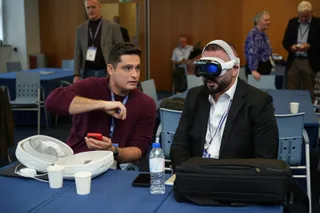Air Macau Uses MPS FTD To Train At Home
Contact Our Team
For more information about how Halldale can add value to your marketing and promotional campaigns or to discuss event exhibitor and sponsorship opportunities, contact our team to find out more
The Americas -
holly.foster@halldale.com
Rest of World -
jeremy@halldale.com

In partnership with Air Macau, MPS has provided a stepping stone towards the training revolution in Asia with pilots given the unique opportunity to add to their training and currency at home after the successful installation of an A320 FTD at the Air Macau Training center last fall.
“The ability to train at home is a groundbreaking achievement in this region. Thanks to the capabilities of the MPS device, coupled with the coordination between Air Macau and its Authorities, Air Macau can now provide not only high quality but also affordable training in the area. Special thanks go out to Captain Qi Yu, the General Manager of Flight Training Division at Air Macau, and Captain Rob van Leest, the Air Macau Flight Training Manager, who had the vision to use the MPS FTD for such purpose,” said MPS Chief Executive Officer Philip Adrian.
Like so many, Air Macau pilots who would normally train away from home have been restricted from traveling due to the global pandemic. However, the installation of an MPS fixed base device at Air Macau’s onsite training center has enabled a select group of pilots to maintain their qualification and currency without complications. This in turn has also allowed for the continuous safe operation of the Air Macau aircraft, which fly routes covering cities in South Korea, Japan, Thailand, Vietnam, Mainland China and Taiwan.
MPS is further supporting Air Macau and its pilots through the installation of its Enhanced Software Suite. This additional technology will allow access to significant innovations such as RePlay and ReFly and Instructorless Training. Among other functions, this technology uses actual input from aircraft safety data to enhance current training knowledge of past events.
Air Macau is thrilled that their authorities allowed the use of their new FTD to qualify their crews operating the flights during these unprecedented times by means of a special training program. It provided Air Macau the opportunity to continue operations when most of their crews were unable to travel abroad for Full Flight Simulator Training. In the future, the company will continue to work with their aviation authority to explore the feasibility of transferring part of the Full Flight Simulator sessions to the FTD. By using an in-house Flight Simulation Training Device the company can achieve considerable cost savings whilst maintaining a high quality of training.


